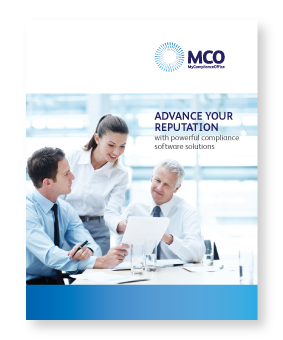The Non Tax Deductibility of Bribes
You can download a full copy of the slides from this webinar.
Full video transcript available below:
Hello, everyone, and welcome to today's webinar, hosted by me, Joe Boyhan, of MCO, and international tax expert, Selva Ozelli. Today's webinar is titled Is This Bribe Tax Deductible? I'm now gonna pass you on to Selva, who's gonna start today's webinar.
|
How does the non tax deductibility of bribes in the US arrive? We can go to page 16 of your presentation now. Broadly speaking, payments made to officials or employees of a foreign government are not deductible for US tax purposes, if the payments are unlawful under Foreign Corrupt Practices Act. Basically, the tax laws hook into the Foreign Corrupt Practices Act laws and make that bribe non deductible. This arises from the OECD requirement, the OECD anti-bribery treaty. In addition to that, payments made to officials or employees of any government other than a foreign government are non deductible for US tax purposes, if the payment constitutes an illegal bribe, or an illegal kickback, so under this provision, bribery payments made to local government officials would also not be deductible, but they have to constitute an illegal bribe or illegal kickback under local criminal rules.
|
|
Similarly, no tax deduction is allowed for US tax purposes for any payment made to a person who is not an officer or an employee of a government if the payment constitutes an illegal bribe, an illegal kickback, or other illegal payments under law the United States, or under any generally enforced law of a state that subjects the payer to a criminal penalty or loss of a license or privilege to engage in a trader business. This is even broader than the first two rules, that a tax deduction is not allowed for.
|
|
This disallowance of deduction, and this would be the tax law session 162.6 C1. No conviction under FCPA is necessary. The relevant criteria is what is improper payments violates FCPA. You don't have to be charged under FCPA for a tax deduction not to be allowed. Therefore, a company may be found not guilty in a criminal bribery case, but still lose the deduction. If the IRS is able to meet the lesser burden in a tax case.
|
|
How is it that the DOJ or the IRS can investigate a multinational company? And the answer is that a US company may be investigated for tax evasion or for FCPA stemming from making transnational bribery payments to a foreign official in foreign jurisdictions, as long as US courts have personal jurisdiction over a company's books and records. The company may be compelled to produce these records and documents under a section 7602 summons, or a grand jury subpoena. A multinational company which operates globally through subsidiaries in several different foreign jurisdictions are still subject to the personal jurisdiction of the US district court, so long as their books and records, the foreign subsidiary's books and records are controlled by the US parent.
|
|
Even if foreign company's books and records are not otherwise within the jurisdiction of the US courts, it may still be validly summoned under a section 7602 or grand jury subpoena when a company under the jurisdiction of the US courts owns or controls more than 50% of a foreign entity. This can either be a corporation or a foreign partnership. The regulators could obtain the books and records of a company, of their foreign subsidiaries, from a foreign jurisdiction, from an exchange of information request, under a tax treaty or information exchange agreement that would also allow contracting parties to obtain information from banks, financial institutions, and persons acting in an agency or fiduciary capacity, which could include the lawyers and the accountants.
|
|
Once the books and records are obtained, a company, under a simultaneous examination program could be investigated concurrently in multiple jurisdictions, for tax evasion purposes. One thing to highlight is that while the OECD convention bans the tax deductibility of bribes, it should be known that 181 countries adopted UN's bribery convention, but this convention does not contain a blanket ban on tax deductibility of bribes. Therefore, for the tax deductibility of bribes of 140 countries, each country's tax laws should be consulted.
|
|
I have detailed the tax risk reporting requirements that are in effect in the US. I want to bring to your attention a new requirement in regards to tax reporting that is proposed by the EU. EU is targeting tax avoidance enablers, and has recently published its proposal for rules for tax advisors, bankers, accountants, and related intermediaries, which will require advanced disclosure to national tax authorities, across border automatic exchanges, any tax scheme that might be deemed potentially aggressive. When this law is adopted by the EU, just know that banks, accountants, lawyers all have the legal requirement to disclose to tax authorities, which will then be automatically exchanged within the EU countries of any tax scheme that might be deemed potentially aggressive. They've adopted this rule because EU does not have a standardized unified tax regulator, so this is the way that they are trying to monitor tax evasion within EU countries.
|
|
Also, another thing to be aware of, that is not detailed in your PowerPoint presentation, is that whistleblower laws with informant awards. A lot of countries have whistleblower laws that protect whistleblowers' rights. However, there are certain countries around the world that also provide informant award. One of them is US. US has whistleblower laws that provide informant awards for reporting foreign corrupt practices act, as well as tax violations. Canada and UK have whistleblower laws that provide informant awards for reporting tax violations.
|


